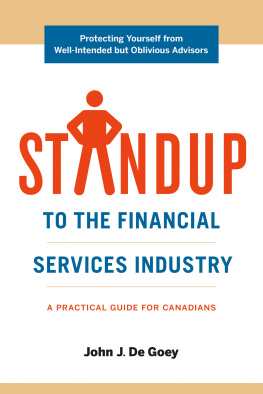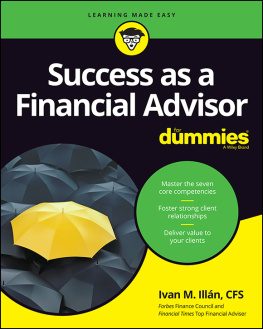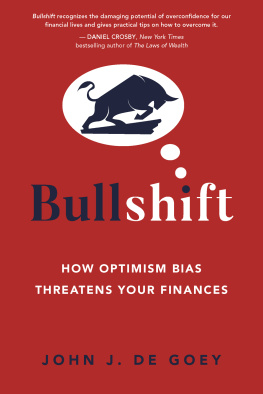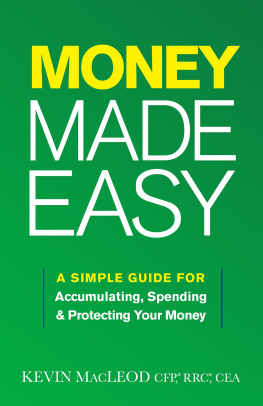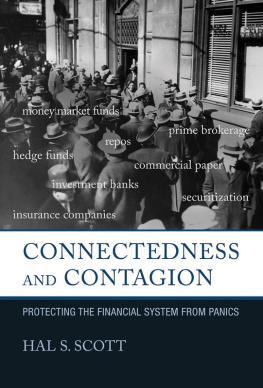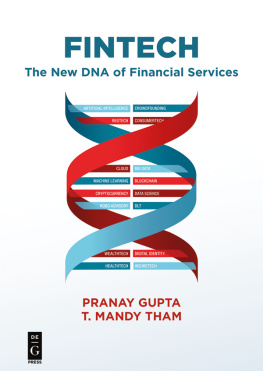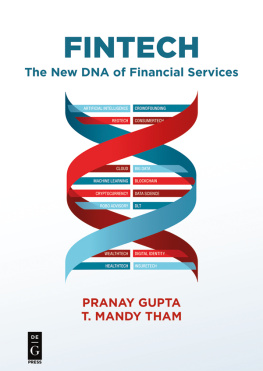John De Goey - STANDUP to the Financial Services Industry: Protecting Yourself From Well-Intended But Oblivious Advisors
Here you can read online John De Goey - STANDUP to the Financial Services Industry: Protecting Yourself From Well-Intended But Oblivious Advisors full text of the book (entire story) in english for free. Download pdf and epub, get meaning, cover and reviews about this ebook. year: 2019, genre: Politics. Description of the work, (preface) as well as reviews are available. Best literature library LitArk.com created for fans of good reading and offers a wide selection of genres:
Romance novel
Science fiction
Adventure
Detective
Science
History
Home and family
Prose
Art
Politics
Computer
Non-fiction
Religion
Business
Children
Humor
Choose a favorite category and find really read worthwhile books. Enjoy immersion in the world of imagination, feel the emotions of the characters or learn something new for yourself, make an fascinating discovery.
- Book:STANDUP to the Financial Services Industry: Protecting Yourself From Well-Intended But Oblivious Advisors
- Author:
- Genre:
- Year:2019
- Rating:5 / 5
- Favourites:Add to favourites
- Your mark:
- 100
- 1
- 2
- 3
- 4
- 5
STANDUP to the Financial Services Industry: Protecting Yourself From Well-Intended But Oblivious Advisors: summary, description and annotation
We offer to read an annotation, description, summary or preface (depends on what the author of the book "STANDUP to the Financial Services Industry: Protecting Yourself From Well-Intended But Oblivious Advisors" wrote himself). If you haven't found the necessary information about the book — write in the comments, we will try to find it.
John De Goey: author's other books
Who wrote STANDUP to the Financial Services Industry: Protecting Yourself From Well-Intended But Oblivious Advisors? Find out the surname, the name of the author of the book and a list of all author's works by series.
STANDUP to the Financial Services Industry: Protecting Yourself From Well-Intended But Oblivious Advisors — read online for free the complete book (whole text) full work
Below is the text of the book, divided by pages. System saving the place of the last page read, allows you to conveniently read the book "STANDUP to the Financial Services Industry: Protecting Yourself From Well-Intended But Oblivious Advisors" online for free, without having to search again every time where you left off. Put a bookmark, and you can go to the page where you finished reading at any time.
Font size:
Interval:
Bookmark:
T his book represents a belated epiphany for me. For nearly a generation, I thought the problems that ailed the investment industry revolved around transparency, advisor bias caused by compensation models and the lack of focus on consumer interests. Those are all still challenges, but I believe there is now a single solution that solves all of them at once.
Why are most peoples investment returns so consistently disappointing? It turns out that a large percentage of the advisor population has misguided beliefs about how investments work. They give advice based on beliefs that simply arent likely to yield favourable results. Thats really just another way of saying advisors are human. But while we all suffer from some misguided beliefs, advisors beliefs are more criticalafter all, they are the ones managing our life savings.
Too often in personal finance, ideas take hold and are taken as true simply because so many people repeat them. Many of the things advisors say are presumptively true yet demonstrably falseor at least ambiguous. The problem lies not only in the message, but also in how that message is delivered.
For many years, I have joined with consumer advocates, indus-try journalists and a handful of like-minded peers in an effort to get the investment industry to be more professional. I know from personal experience that most advisors make recommendations that are well-intended. There is little doubt that the vast majority of financial advisors in Canada sincerely mean well and genuinely care about the welfare of the clients they serve. In spite of this, however, the evidence shows that much of what they believe is demonstrably wrong. In other words, people who give advice for a living routinely give bad advice while honestly believing that the advice they are giving is, in fact, good. Thats a huge problem.
This book examines some of the behavioural and systemic reasons why advisors are giving poor advice, and it offers you tools to help ensure the advice you receive is in your best interest. It aims to give you the resources you need to hold advisors accountable for the advice they offer.
As a nation, Canadians are generally regarded as accepting, non-confrontational people. As a result, the mandate for this book is a particularly tricky one. Getting people to confront a deeply rooted industry mindset involves three distinct and sequential challenges to how the industry operates:
Summoning the courage to ask the necessarily tough questions in the first place
Figuring out which questions to ask once the courage has been summoned
Determining the validity of the answers that are provided when you get them
Its unlikely that the problem can be overcome if the advisors who are trying to do things properly are restricted from speaking freely about what is wrong. It may be that part of the problem is that the industry actively shuts down frank assessments of deficiencies, thereby allowing the status quo to persist longer than it otherwise might. Until now, the reputation of the industry has trumped the respect for truth.
No one wants to look into a mirror and realize they have unwittingly been unprofessional. Many advisors have convinced themselves that the way they work is appropriate and best for their clients. Of course, believing something is true doesnt make it trueand repeating unproven activities and attitudes doesnt make them any more appropriate.
This reminds me of a parable. An ancient king once had a dream in which all his teeth fell out. The following day, he sent for a court dream interpreter to explain it to him. After listening to the king recount his dream, the dream interpreter said, The dream means that all your relatives will die and youll be alone. The king fired the employee on the spot and called for a second dream interpreter. The second listened to the recounting of the dream and then said, Good news, your majesty! The dream means you will live many more yearslonger than all your relatives, in fact. For this, the second interpreter received a substantial reward. The irony, of course, is that the two dream interpreters said essentially the same thing. The difference was in how they delivered their messages: style and tone, not substance. Until now, I have been like the first dream interpreter. Going forward, I aim to be more like the second.
In my previous book, The Professional Financial AdvisorIV ( TPFAIV for short), I used the acronym STANDUP (Scientific Testing and Necessary Disintermediation Underpin Professionalism) to summarize the need for greater emphasis on evidence, integrity and transparency in the advice business. Simply put, giving STANDUP advice and acting in a STANDUP manner mean verifying evidence and eliminating bias in order to give clients a truly professional experience. This is a worthy cause that I am proud to be associated with. I refer to STANDUP advisors throughout this book as the self-aware and knowledgeable advisors I will help you find. They exist and are excellent. You might want to refer to TPFAIV as a resource when speaking with your advisors about many of the ideas discussed here.
My message is simple: hold your advisors accountable for their recommendations. There is a saying that the sincerest apology is changed behaviour. Mistakes must be corrected! Those who refuse to correct them shouldnt be forgiven for their refusal.
Theres a strong consensus that most investors genuinely like their advisors and trust that they are looking out for them. Ironically, that implicit trust is an impediment to progress because few people think there are any problems that need to be solved. Advisors will need to tease out their own biases and make a serious effort to identify their own shortcomings. In the meantime, your action now will protect your investments while also starting to address the financial advising industrys systemic and entrenched problems.
It aint what you dont know that gets you into trouble. Its what you know for sure that just aint so.
mark twain (apocryphalnote that its especially ironic, seeing as Twain never actually said it)
G etting financial advice is important. Dozens of books preach about the importance of good financial advice, and an entire industry provides it. But is the advice any good? This book argues that the advice investors are getting is quite likely to be wrong even though the advisor who is giving it wants to do well by the client.
Many books talk about how the industry uses complex strategies to layer on fees and then gets hapless people to buy in by using compelling advertising campaigns. This might well be the first book that shows advisors to be simply the friendly face of an industry inclined to get clients to think in specific, revenue-maximizing wayseven when there is no basis for that line of thinking. Advisors might be better seen as unwitting accomplice intermediaries between some sophisticated corporations and trusting Canadian consumers. Many advisors are, in fact, small players in a larger arena that most people (notably the advisors themselves) are oblivious to. This books objective is to be direct and honest about factswhat isand to propose actionable recommendations to overcome themwhat ought to be.
As I explained in my book The Professional Financial AdvisorIV(TPFAIV), most advisors hold themselves out to be professionals the way doctors, dentists, lawyers and accountants do, yet for most, their primary function is to sell products. Overwhelmingly, these advisors are not sneaky manipulators of client assets (although Im sure there are a handful of those) but trusting, consensus-seeking human beings who are just trying to earn a living by taking care of their clients. They truly believe in the products they are selling. Financial advisors are merely human.
Font size:
Interval:
Bookmark:
Similar books «STANDUP to the Financial Services Industry: Protecting Yourself From Well-Intended But Oblivious Advisors»
Look at similar books to STANDUP to the Financial Services Industry: Protecting Yourself From Well-Intended But Oblivious Advisors. We have selected literature similar in name and meaning in the hope of providing readers with more options to find new, interesting, not yet read works.
Discussion, reviews of the book STANDUP to the Financial Services Industry: Protecting Yourself From Well-Intended But Oblivious Advisors and just readers' own opinions. Leave your comments, write what you think about the work, its meaning or the main characters. Specify what exactly you liked and what you didn't like, and why you think so.

